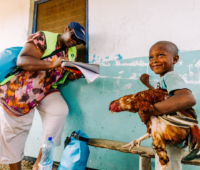In their contribution to the “Covid-19 and the Social Sciences” series, Elisabeth Jean Wood, Douglas Rogers, K. Sivaramakrishnan, and Rene Almeling explain that for the foreseeable future, research in many field sites will face complex ethical and logistical challenges, and argue that immersive ethnographic field research will likely be among the last areas of academic research to resume something resembling its prepandemic rhythms. They reflect on the necessary conditions for the resumption of US-based or international field research and propose a series of principles that academic institutions can follow in order to avoid promulgating unresponsive, blanket policies.













